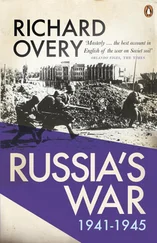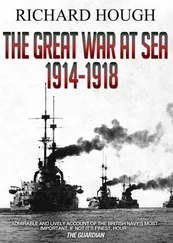By the summer of 1944 the Allies had other preoccupations and it seemed evident that Bulgarian politics had been sufficiently destabilized by the bombing to make further attacks redundant. Nevertheless, the final assessment of the effects of the bombing was ambivalent. In July the United States Joint Chiefs of Staff prepared an evaluation of the Balkan bombings which suggested that the psychological effects desired had largely been achieved; the report nevertheless suggested that the enemy had sustained an effective propaganda campaign about the high level of civilian casualties, which had undermined the prestige of both the United States and Britain in the eyes of the Bulgarian people. The chiefs directed that in the future any attacks in the region had to be confined to ‘targets of definite military importance’ and civilian casualties minimized. The British chiefs of staff rejected the American claim and, in defiance of what they well knew to be the case, insisted that only military targets had been subject to attack, even if this had involved damage to housing and civilian deaths. Their report concluded that Allied bombers ought always to be able to act in this way and that operations ‘should not be prejudiced by undue regard for the probable scale of incidental casualties’. 29This was a view consistent with everything the RAF had argued and practised since the switch to the deliberate bombing of German civilians in 1941.
For the historian the judgement is more complex. Bombing almost certainly contributed to the collapse of any pro-German consensus and strengthened the hand both of the moderate centre-left in the Fatherland Front and of the radical partisan movement. But in the end this did not result in a complete change of government until 9 September 1944, when the Soviet presence produced a Fatherland Front administration dominated by the Bulgarian Communist Party (a political outcome that neither Churchill nor Eden had wanted from the bombing). 30Moreover, other factors played an important role in Bulgarian calculations: the crisis provoked by Italian defeat and surrender in September 1943; the German retreat in the Soviet Union; and fear of a possible Allied Balkan invasion or of Turkish intervention. 31Where Churchill saw bombing as a primitive instrument for provoking political crisis and insisted throughout the period from October 1943 to March 1944 that this was the key to knocking Bulgaria out of the war, the American military chiefs continued to give preference to the bombing of Italy and Germany and were less persuaded that a political dividend was certain. For them the bombing fitted with the strategy of wearing down Germany’s capacity for waging war by interrupting the supply of vital war materials and forcing the diversion of German military units from the imminent Normandy campaign. There was also a price to pay for the bombing. In September 1944, following the Bulgarian surrender, some 332 American Air Force prisoners of war were sent by air shuttle to Istanbul and then on to Cairo; some had crashed bombing Bulgaria, others on their way to or from attacks on Romanian targets. An American report suggested that the prisoners had been badly treated. Two air force prisoners were killed by the Bulgarian police, and an estimated 175 American war dead were presumed to be on Bulgarian territory, although only 84 bodies could be located. 32
The bombing of Bulgaria recreated in microcosm the many issues that defined the wider bombing offensives during the Second World War. It was a classic example of what has come to be called ‘strategic bombing’. The definition of strategic bombing is neither neat nor precise. The term itself originated in the First World War when Allied officers sought to describe the nature of long-range air operations carried out against distant targets behind the enemy front line. These were operations organized independently of the ground campaign, even though they were intended to weaken the enemy and make success on the ground more likely. The term ‘strategic’ (or sometimes ‘strategical’) was used by British and American airmen to distinguish the strategy of attacking and wearing down the enemy home front and economy from the strategy of directly assaulting the enemy’s armed forces.
The term was also coined in order to separate independent bombing operations from bombing in direct support of the army or navy. This differentiation has its own problems, since direct support of surface forces also involves the use of bombing planes and the elaboration of target systems at or near the front whose destruction would weaken enemy resistance. In Germany and France between the wars ‘strategic’ air war meant using bombers to attack military and economic targets several hundred kilometres from the fighting front, if they directly supported the enemy’s land campaign. German and French military chiefs regarded long-range attacks against distant urban targets, with no direct bearing on the fighting on the ground, as a poor use of strategic resources. The German bombing of Warsaw, Belgrade, Rotterdam and numerous Soviet cities fits this narrower definition of strategic bombing. Over the course of the Second World War the distinction between the more limited conception of strategic air war and the conduct of long-range, independent campaigns became increasingly blurred; distant operations against enemy military, economic or general urban targets were carried out by bomber forces whose role was interchangeable with their direct support of ground operations. The aircraft of the United States Army Air Forces in Italy, for example, bombed the monastery of Monte Cassino in February 1944 in order to break the German front line, but also bombed Rome, Florence and the distant cities of northern Italy to provoke political crisis, weaken Axis economic potential and disrupt military communications. The German bombing of British targets during the summer and autumn of 1940 was designed to further the plan to invade southern Britain in September, and was thus strategic in the narrower, German sense of the term. But with the shift to the Blitz bombing from September 1940 to June 1941, the campaign took on a more genuinely ‘strategic’ character, since its purpose was to weaken British willingness and capacity to wage war and to do so without the assistance of German ground forces. For the unfortunate populations in the way of the bombing, in Italy or in Britain or elsewhere, there was never much point in trying to work out whether they had been bombed strategically or not, for the destructive effects on the ground were to all intents and purposes the same: high levels of death and serious injury, the widespread destruction of the urban landscape, the reduction of essential services and the arbitrary loss of cultural treasure. Being bombed as part of a ground campaign could, as in the case of the French port of Le Havre in September 1944 or the German city of Aachen in September and October the same year, produce an outcome considerably worse than an attack regarded as strategically independent.
In The Bombing War no sharp dividing line is drawn between these different forms of strategic air warfare, but the principal focus of the book is on bombing campaigns or operations that can be regarded as independent of immediate surface operations either on land or at sea. Such operations were distinct from the tactical assault by bombers and fighter-bombers on fleeting battlefield targets, local troop concentrations, communications, oil stores, repair depots, or merchant shipping, all of which belong more properly to the account of battlefield support aviation. This definition makes it possible to include as ‘strategic’ those operations that were designed to speed up the advance of ground forces but were carried out independently, and often at a considerable distance from the immediate battleground, such as those in Italy or the Soviet Union, or the aerial assault on Malta. However, the heart of any history of the bombing war is to be found in the major independent bombing campaigns carried out to inflict heavy damage on the enemy home front and if possible to provoke a political collapse. In all the cases where large-scale strategic campaigns were conducted – Germany against Britain in 1940–41, Britain and the United States against Germany and German-occupied Europe in 1940–45, Britain and the United States against Italian territory – there was an implicit understanding that bombing alone might unhinge the enemy war effort, demoralize the population and perhaps provoke the politicians to surrender before the need to undertake dangerous, large-scale and potentially costly amphibious operations. These political expectations from bombing are an essential element in the history of the bombing war.
Читать дальше
Конец ознакомительного отрывка
Купить книгу












